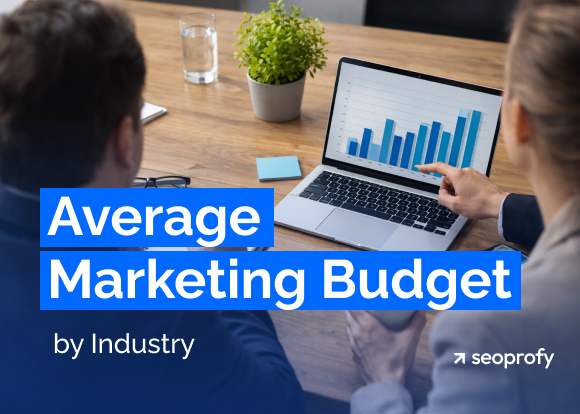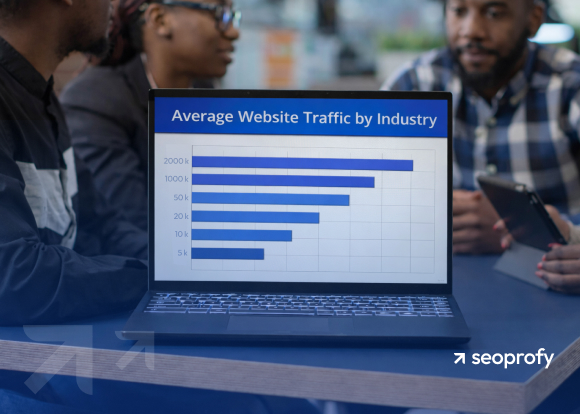SEO typically takes 3-6 months to show results, based on our experience.
However, this timeline can vary depending on your niche and industry. For instance, local SEO businesses may see initial results within 3-4 months. For medium-competitive niches like specialized e-commerce stores, law firms, and other national businesses, results typically take 6-12 months. Highly competitive niches such as online industries, gambling, crypto, and credit cards may require 16-24 months to achieve significant results.
- SEO is a long-term strategy, and results can vary based on the industry.
- Initial results can be seen within 3-6 months, but achieving your full potential may take 12 months or longer.
- Factors affecting SEO timelines include site health, competition, resources, content creation, and backlink strategy.
- Setting realistic expectations and maintaining consistent efforts is essential for long-term success.
- Tips to speed up SEO results include addressing technical problems, targeting low-hanging fruit keywords, and building high-quality backlinks.
Why does SEO take so long?
SEO is a complex process that relies on multiple factors working together. It’s not just one thing, but a combination of strategies that affect how well your website appears in search results. Here are some of the key aspects to consider:
- Content Quality: Does your website offer valuable, relevant content that meets user needs and search intent?
- Competitive Landscape: Are you aiming to rank in a highly competitive industry with many authoritative websites?
- Technical SEO: Are you addressing technical issues like site speed, mobile optimization, and crawlability?
- Backlink Profile: Are you building a strong backlink profile from reputable sites to boost your site’s credibility?
- Website Usability: Is your website’s structure logical and easy to navigate?
Mastering all these aspects requires a lot of time and resources.
5 factors that affect your SEO timeline
When it comes to the SEO timeline, many factors affect how long SEO takes. Let’s explore each of them in more detail:
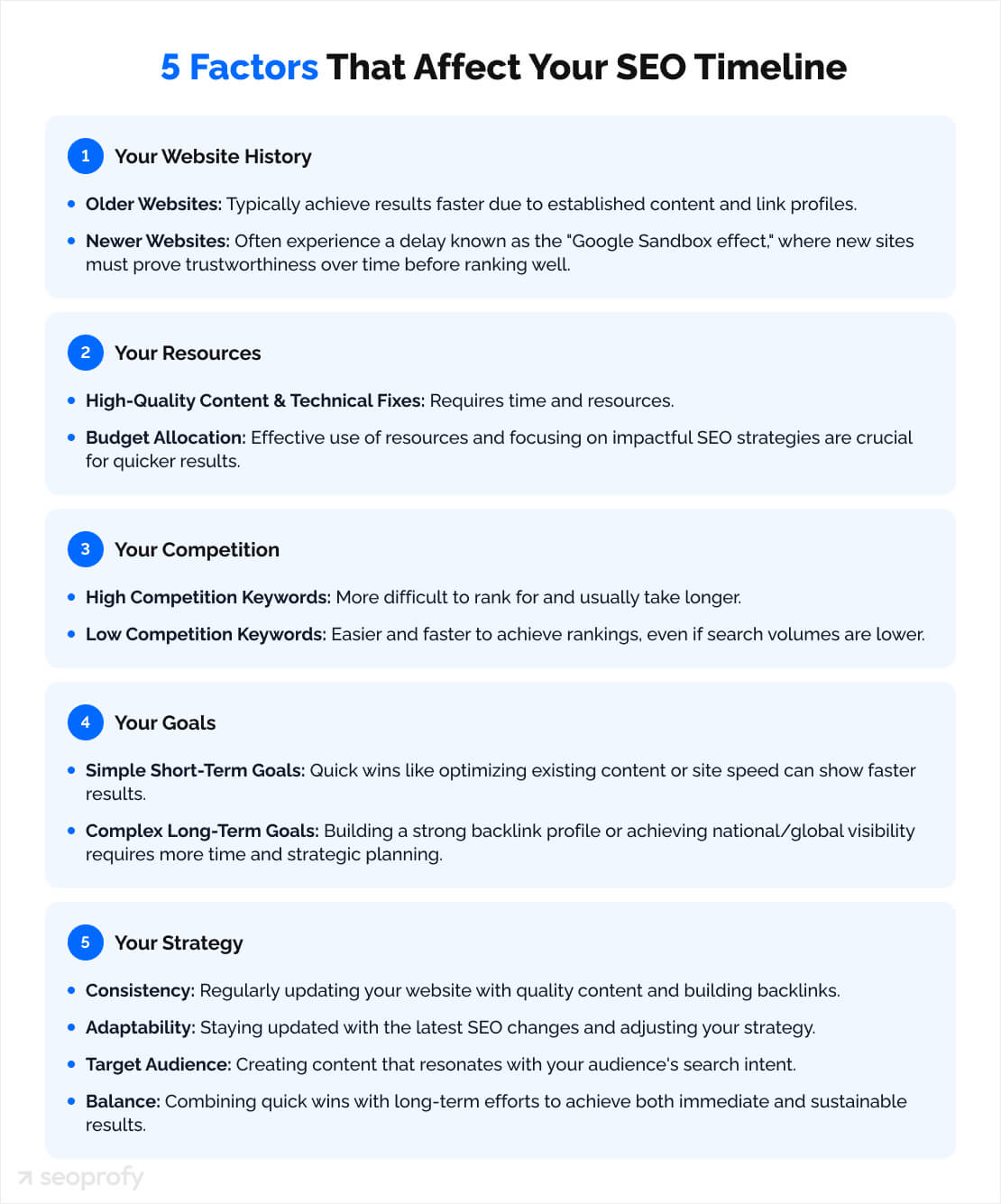
Your website history
The age of your website significantly impacts how long SEO takes to show results. Older websites with more content and better link profiles tend to achieve results faster. However, if you were wondering how long SEO takes to work for new websites, here’s the catch: newer sites with less content usually need more time to start showing up in search results.
This delay is known as the Google Sandbox effect. It means new websites must prove their trustworthiness over time before they can appear prominently in search results. Understanding this phase is important when thinking about the SEO results time frame.
At SeoProfy, we use our in-house SearchAnalytics Tool that includes a metric called domain age. This metric helps us identify how quickly optimization results can happen for our clients.
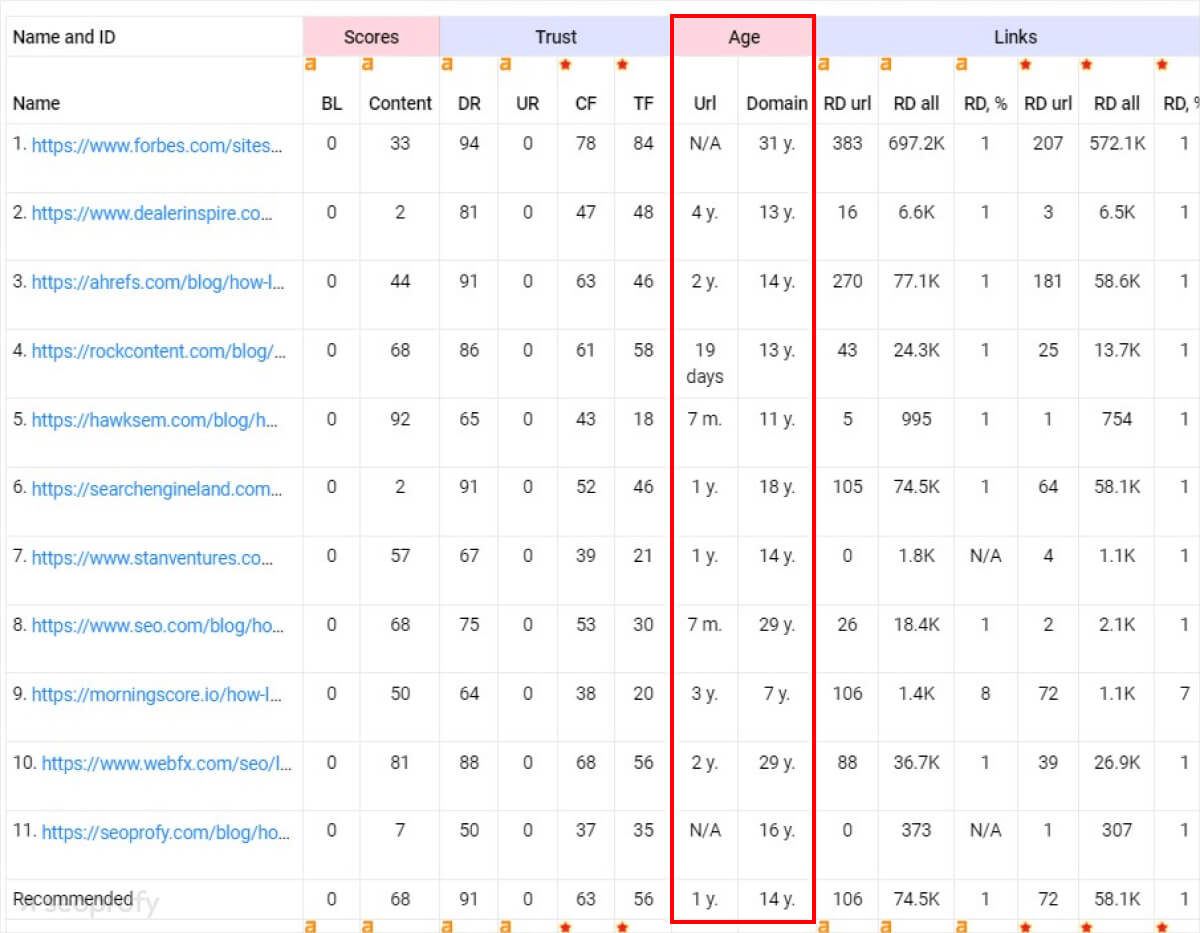
Your resources
SEO often involves creating high-quality content, fixing technical issues on your website, and getting other sites to link to yours. All these tasks require time and often resources, which explains why SEO takes time to show results. Without enough resources, it’s hard to do these things well and consistently. This delay can slow down how fast your website moves up in search results.
However, it’s important to note that money isn’t always the deciding factor.
Money is not always the key to success in SEO. The most important thing is speed and a systematic approach. The final SEO result depends on how you and your team implement all the recommendations.
Andrew Shum, Head of SEO
The best solution is to allocate your resources wisely and focus on the SEO strategies that bring in the most results.
Your competition
SEO takes time to start working, and competition plays an important role in determining how quickly you’ll see results. The more websites aim for the same target keyword as you, the harder it will be to rank for that keyword.
Let’s take a look at the screenshot below. Even though the “SEO company” keyword has great potential for organic traffic, it has a difficulty score of 83. This means it would be unrealistic to achieve high rankings for this keyword in the first year, especially for new businesses. Keywords like this should always be a long-term goal, with a timeframe of more than 1.5 years.
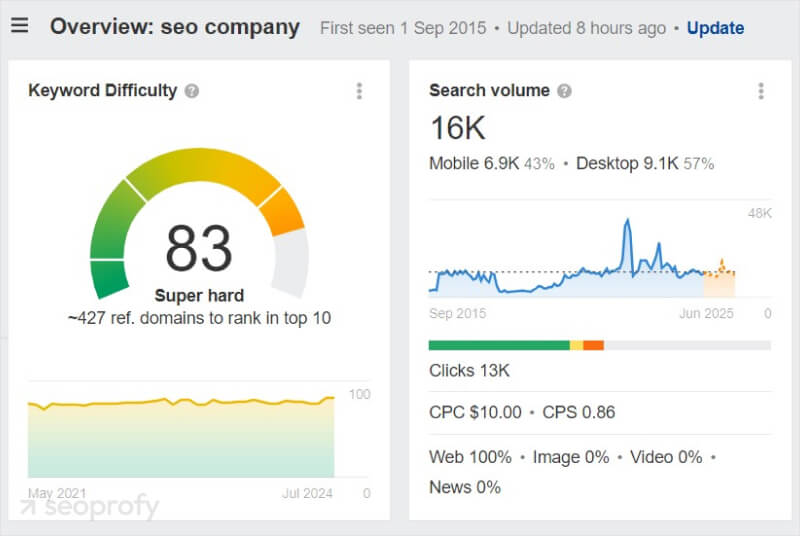
If you check the top-ranking pages for this keyword, you’ll see that all of them are highly competitive and have a significant number of backlinks referring to them. As a result, it would be challenging for you to compete with them.
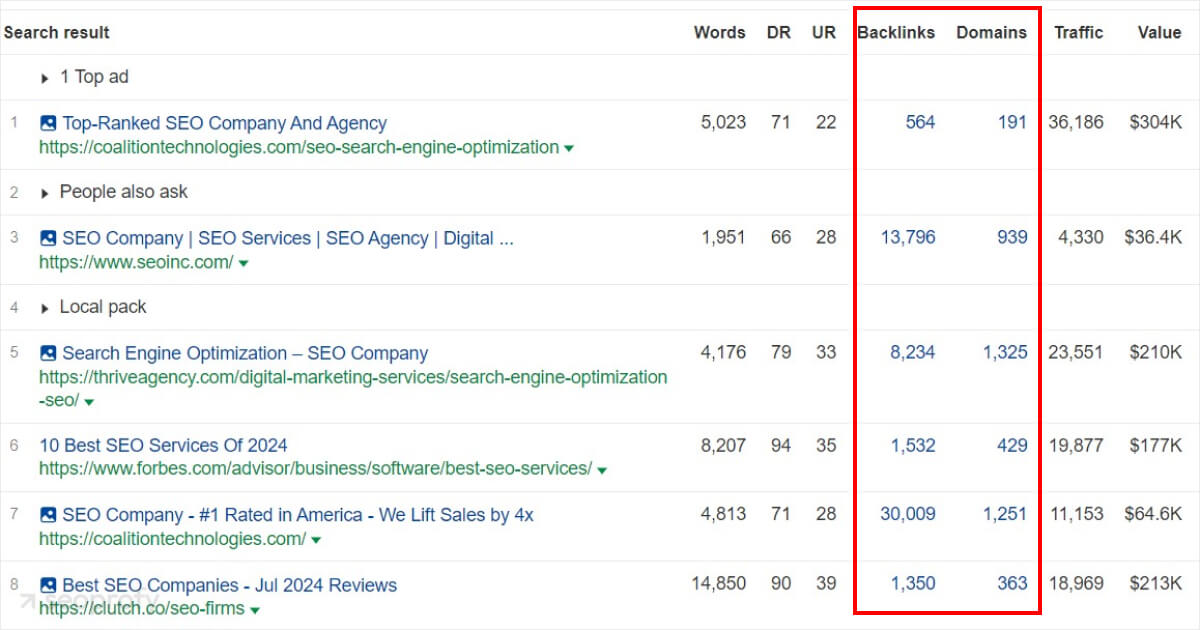
On the other hand, if we look at Miami SEO company, we see that this keyword has much less competition, with noticeably fewer backlinks than our first example.
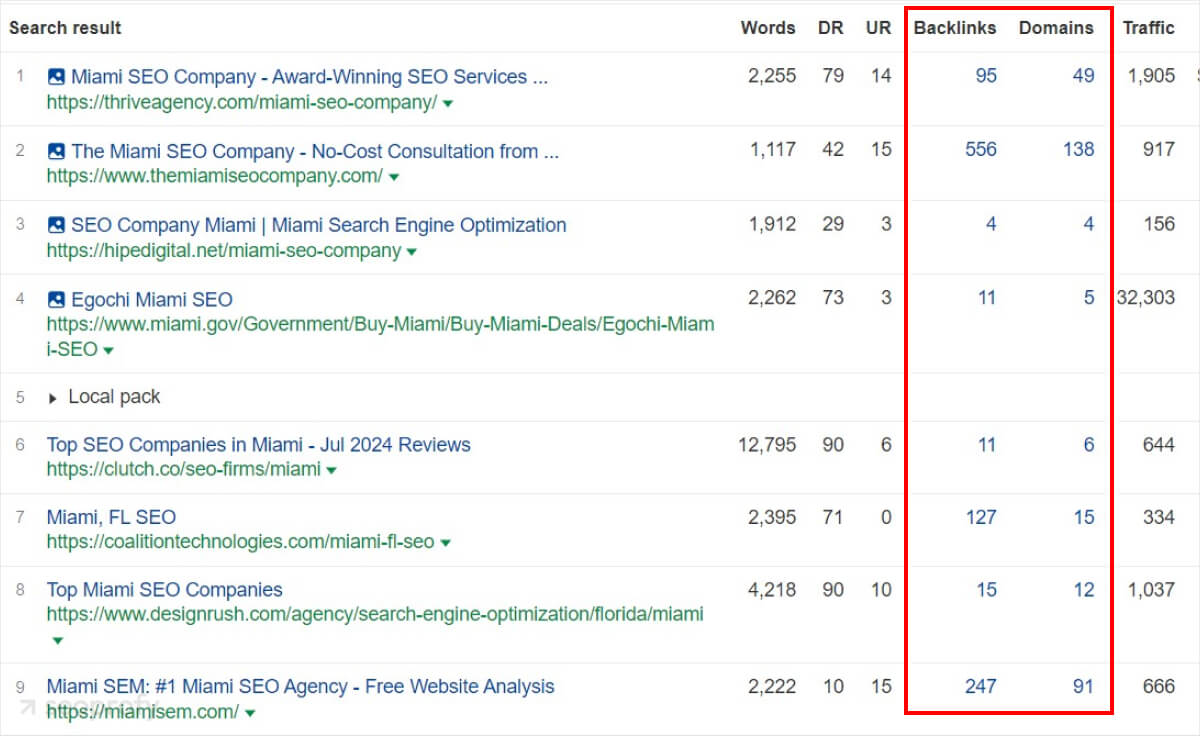
The KD here is only 16, suggesting a much more achievable path to ranking.
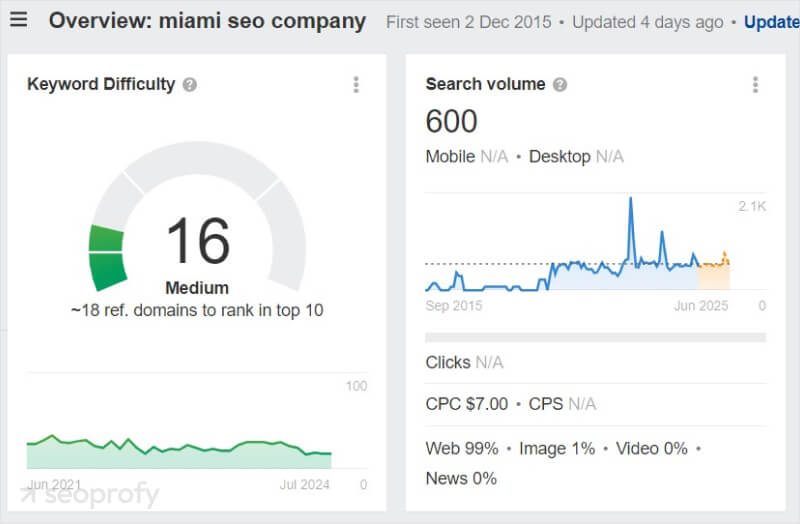
Based on these examples, you can see that it’s always better to target keywords with less competition, even if they are not high in search volume. This way, you can avoid competing with highly authoritative websites and achieve significant SEO results faster.
Your goals
Goals play a key role in determining your SEO timeline. You may be wondering, “How long does SEO take to work if my goals are simple? What if they are more complex?” Here is a breakdown:
Simple short-term goals
Short-term goals like optimizing existing content or improving site speed are often considered low-hanging fruit in SEO as they don’t require much effort to bring in results. For example, If your goal is to rank for low-competition keywords in niches like HVAC SEO, you can expect to see results much faster than if you were trying to rank for a broad and highly competitive keyword.
Complex long-term goals
On the other hand, complex goals require more time and strategic planning. These goals typically include building a strong backlink profile, gaining topical authority, or trying to reach global/national visibility. While none of these can be achieved in a short amount of time, they are essential for long-term success.
Understanding how your goals affect your SEO time frame can help you set realistic expectations and tailor your strategy for both short-term gains and long-term success.
Your strategy
Another important element to consider is your overall digital marketing strategy. A well-thought-out and consistent approach can make a significant difference in achieving your SEO goals. Here are a few key aspects to keep in mind:
- Consistency: Regularly update your website with quality content and build backlinks to make SEO take effect faster.
- Adaptability: Stay in the know on the latest SEO changes and adapt your strategy accordingly to help maintain effectiveness over time.
- Target audience: Understand your target audience and create content that resonates with their search intent to increase organic traffic.
- Balance: Combine quick wins like technical fixes with long-term efforts like content marketing to achieve SEO results sooner and build a strong foundation for future success.
5 ways to get SEO results much faster
While SEO requires time and effort, there are ways to speed up the process. Let’s explore some of them:
Focus on low-competition keywords
Targeting keywords with less competition is one of the best ways to quickly improve your SEO. You can find these keywords by setting filters in your keyword research tool.
Here’s a step-by-step approach:
- Enter your target keyword into a Keyword Research Tool like Ahrefs.
- Set the Keyword Difficulty filter to 30.
- Select the lowest domain rating, up to 40 in the top 5 results.
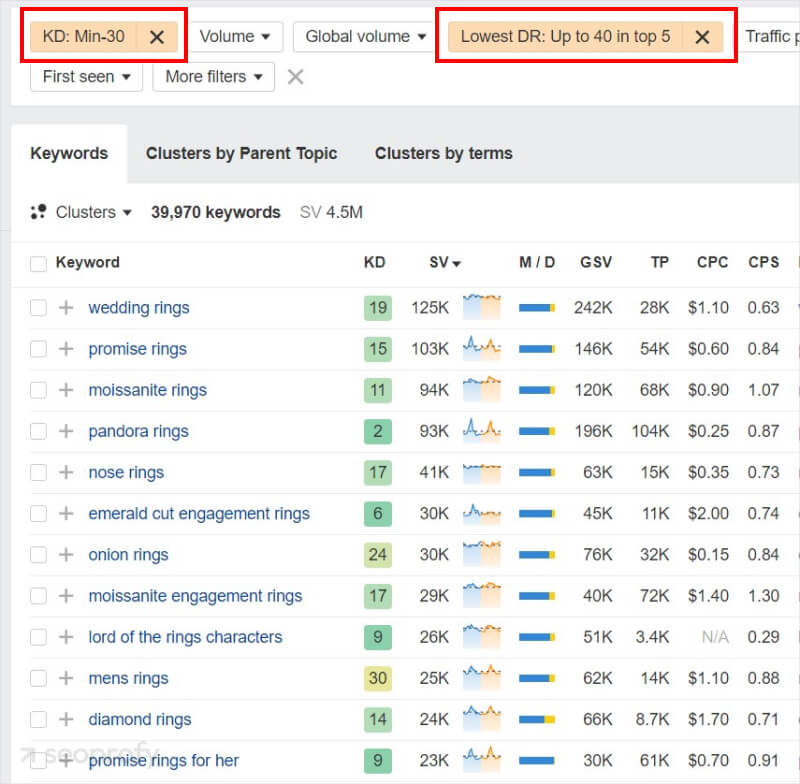
This method will help you find keywords and search queries with a low difficulty score, meaning it will be easier for you to rank for them. Once you’ve analyzed these keywords and found the most relevant ones for your business, you can add them to your keyword list.
For instance, if you’re an ecommerce business selling wedding rings, using a keyword like “emerald cut engagement rings” can be highly effective. With a KD of only 6, it will be easy for you to rank for this specific keyword. This approach is one of the many strategies we use for ecommerce SEO to optimize the online presence of our clients.
Fix your technical issues
Technical optimization is another ranking factor that can speed up the results of your SEO campaign. That’s why it’s important to fix your SEO issues and implement improvements. Here are some areas to focus on:
- Loading speed and web vitals: Ensure your website loads quickly and meets Google’s standards for user experience.
- Broken internal links: Fix links that lead to pages that don’t exist (404 errors).
- 301 Redirects: Redirect outdated URLs to relevant pages to maintain SEO value.
- Duplicate content: Avoid situations where the same content appears on multiple pages.
- Indexing problems: Make sure search engines can crawl and index your pages.
In the screenshot, you can see some of the metrics of a website’s performance that need to be checked for better results.
- Health Score: This metric assesses the overall health and performance of your website.
- Crawled URL distribution: This shows how search engines crawl and index your website’s URLs.
- Crawl status of links found: This indicates the status of links discovered during the crawling process.
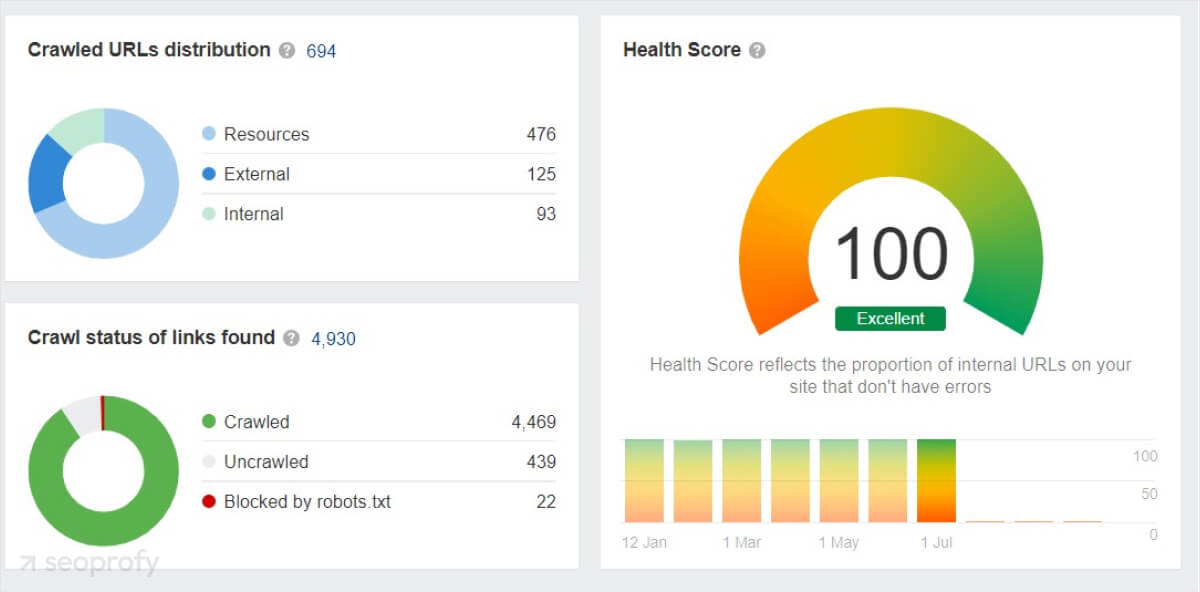
By monitoring and maintaining these metrics, you not only improve your SEO results but also ensure a better user experience for your website visitors.
Optimize low-hanging fruit keywords
To quickly boost your website traffic, you can optimize keywords your site already ranks for. Use a keyword research tool to find these keywords and focus specifically on those where your site ranks between positions 5 and 20 in search results.
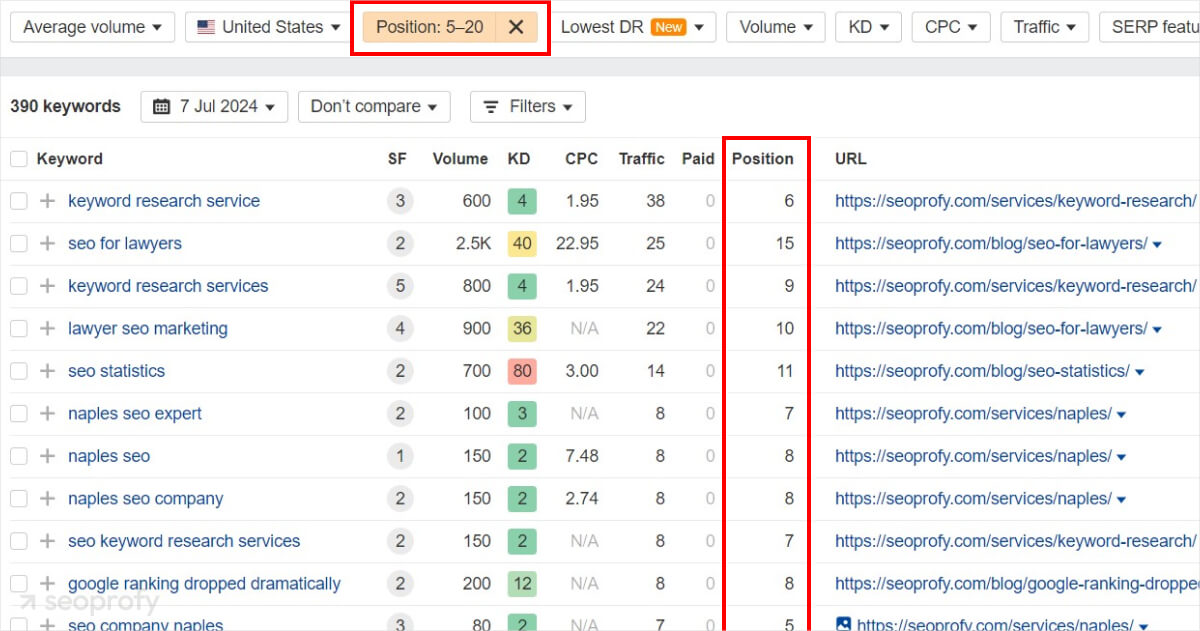
By focusing on keywords where your site is already ranking reasonably well, you can achieve SEO results faster. These keywords already have some traction, and optimizing them can lead to faster wins in visibility and traffic compared to starting from scratch with entirely new keywords.
Once you’ve identified relevant keywords, you can start creating high-quality content around them. This involves improving the on-page SEO elements such as meta tags, headers, and the content itself to better match user intent.
Don’t ignore link building
Link building has always played a big role in the SEO world. Many marketers believe it will continue to be a significant factor in Google’s search algorithm over the next few years.
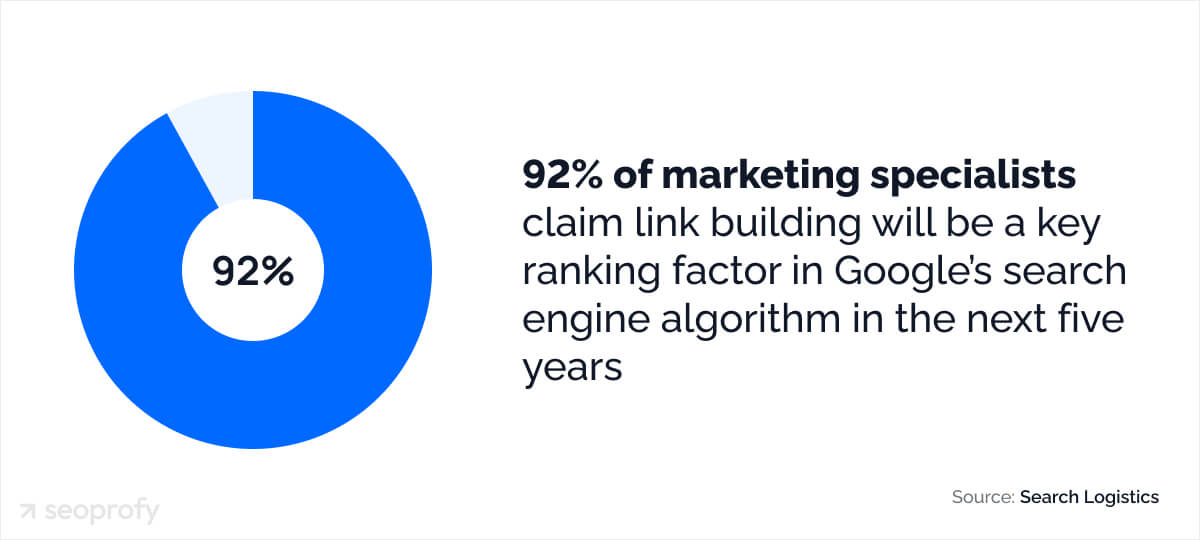
Here are the main benefits of getting backlinks:
- Boosts site authority: Links from respected sites show search engines that your site is trustworthy.
- Increases visibility: Backlinks from popular sites can bring more direct traffic to your site.
- Drives organic traffic: Better rankings mean more people finding your site through search engines.
- Builds credibility: Being linked to by credible sources enhances your brand’s reputation.
For more insights on the importance of link building, check our article on SEO and backlink statistics and discover which tactics are relevant for businesses in 2024.
Remove or improve unhelpful content
Old or irrelevant content can significantly impact how long SEO takes to start working. That’s why it’s important to always keep an eye on how your content is performing. Here’s a quick way to do it:
- Go to Google Search Console.
- Click on Performance (Search Results).
- Choose the date range, like the last 12 or 16 months.
- Sort by impressions to see which pages get less attention.
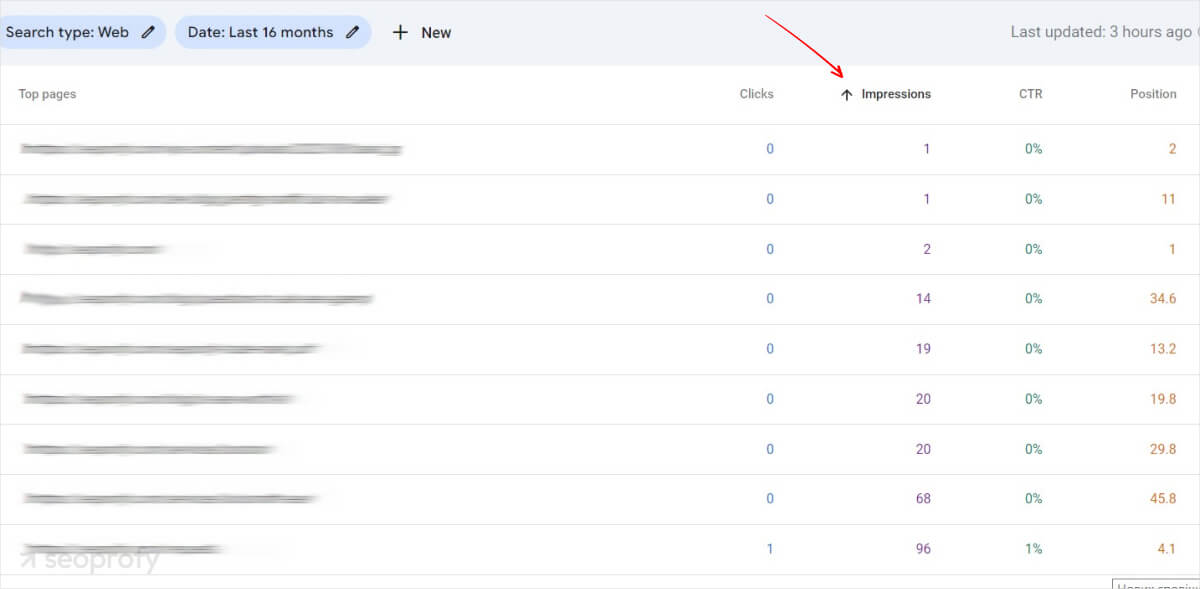
If you have a larger website, you can use tools like Screaming Frog and Google Search Console API to make this process smoother.
Next, you need to analyze the content on pages that received less than 100-1,000 impressions (depending on your topic) in the last 12 or 16 months. If the content on these pages is outdated, we recommend updating it with new information. Doing this will help you make the content more interesting and useful to your readers.
After updating your content, ask Google to reindex your page. This helps Google notice your changes faster and can lead to better search rankings sooner.
SEO results time frame
One of the most common questions our SEO company receives is: “How long does SEO take to show results?” To answer this, let’s explore the process that defines our search engine optimization strategy. We typically divide it into three stages:
- Analysis and strategy development
- Implementation and technical corrections
- Scaling.
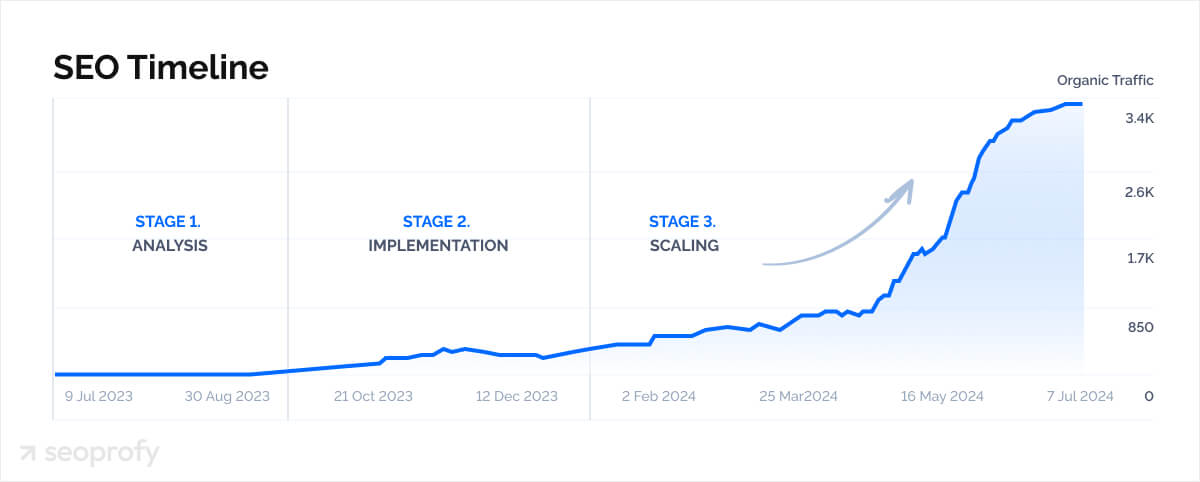
Stage 1: Analysis (months 1-2)
At the initial stage of SEO, results are not immediately visible. This is the phase when all the attention goes to thorough analysis and planning. During this stage, our company does the following:
- Performs a comprehensive website audit
- Analyzes the niche market
- Formulates an effective SEO campaign
- Develops a strategic link building plan.
Stage 2: Implementation and technical correction (months 3-5)
In the second stage of search engine optimization, the focus shifts to implementing the SEO strategy developed in the analysis stage. This is the stage where you need to start applying our recommendations. These usually relate to:
- Website structure
- Internal linking
- On-page optimization
- Off-page optimization
- Improving Core Web Vitals
During this phase, you’ll start seeing some SEO results, although they may not be significant.
Stage 3: Scaling and ongoing optimization (months 6+)
The final stage involves scaling up the SEO efforts that have shown promise during the previous phase. This is the stage where you’ve applied most of our recommendations and are only starting to scale. During this stage, your main focus is on content optimization and link building. Here are some of the tasks you may need to do at this stage:
- Create new content and pages to build topical authority.
- Improve existing content for better relevance and engagement.
- Build a solid backlink profile to improve credibility.
By this stage, you should see noticeable growth in your performance. However, if your SEO doesn’t work at this stage, it’s essential to review your SEO strategy to identify any areas that need adjustments.
Speed up your SEO with SeoProfy
Search engine optimization might seem complex, but with the right approach, you can achieve significant results. Remember, SEO is a long-term strategy, and it takes time to work. However, if you follow our recommendations in this article and put in consistent effort, you’ll be able to see SEO results faster.
If you need any help with your SEO efforts, SeoProfy is here to guide you every step of the way. With over 12 years of expertise, our proven strategies and commitment to your business growth can speed up your path to SEO success.
Ready to stand out from your competitors? Schedule a free consultation with our SEO agency today and start your journey toward better rankings.








